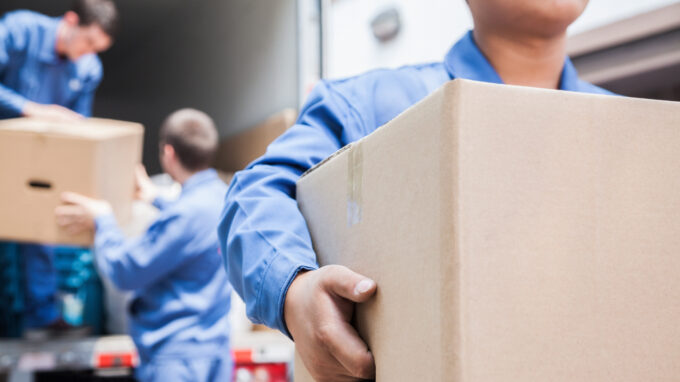Hurray! You accepted a new work offer in a different city, located the ideal apartment, or finally closed on your dream home. While you’re delighted to take the next step, you’re also frustrated by the fact that you’ll have to pack all of your stuff into boxes and transport them to a new location.
Moving day finally arrives, a long, sweaty day of heavy lifting punctuated by the occasional last-minute setback. When everything is said and done, you sit back in your new home and take a moment to relax before looking at your boxes and realizing how much work remains.
Moving can be a headache for many people as it involves so much thinking and work to do.
It’s actually not that horrible, and everything always works out in the end. But it’s a fact of life that relocating brings stress, and it’s better to be prepared (and know how to deal with it) than to let it get the best of you. These six suggestions for making relocating less stressful are a wonderful place to begin if relocation worries are eating you out.
1. Hire a Professional Moving Company

Source: moving.com
While hiring professional movers to handle the relocation logistics may not eliminate all of the stress that comes with it, it will take a weight off your shoulders. When looking for movers, do your homework to ensure that you choose a reputable company.
There are a variety of options to choose from. A full-service packer, for example, will handle the entire process, whereas others can pack and deliver only fragile items or appliances. If you hire a professional moving company, make sure you have moving insurance and a complete inventory of your assets in case something gets damaged or goes missing.
Visit this site to know more about the best movers and packers in your region.
2. Organize Yourself Before Moving
Moving might be complicated if you aren’t organized. It applies to every aspect of your relocation, from arranging and labeling boxes in a way that makes them easier to unpack to keeping all of the documents you’ll need – the contract with your movers, your new lease, and so on – in one, easily accessible location. You’ll have fewer difficulties and a smoother overall relocation if you make organization a priority from the start.
3. Make A Moving Checklist

Source: furnishedquarters.com
Another essential method to lower stress on a moving day is to use a moving checklist. Lists are handy when it comes to following particular aspects of the moving process and taking care of items that are sometimes overlooked. You can make one yourself, find one on the Internet, or look for one on the website of a professional moving company. You can keep track of events as they unfold by visually organizing your move.
4. Declutter Prior To Moving
Clearing your home of any outdated, unwanted, or useless belongings before moving will save you not just time and frustration but also money!
You can reduce the quantity of material you need to move by giving, recycling, or throwing away anything you don’t need. The smaller the van, the less time you require to move your things; hence, you can also save money.
Avoiding paying to transfer items that you will merely throw away once you arrive at your new house is an easy method to save money on your move!
5. Start Packing As Soon As Possible

Source: pexels.com
Packing often takes longer than you expect, which is why you should get started right away. When you’ve gotten rid of anything you don’t need, start with the rooms you don’t use very often.
Packing up rooms and using them to keep boxes of belongings will cause the least amount of disruption to your life, allowing you to get as much done as possible.
When labeling boxes, it’s tempting to just summarize the contents at the top, such as “kitchen things,” but that won’t help you prioritize unpacking!
Label the box with the room in your new home where you want it to go, and bullet point a few of the contents, so you know what’s inside. You’ll thank us when you don’t have to rummage through fifteen boxes labeled “kitchen” to find the one containing the plates!
Make sure your boxes aren’t overstuffed! It’s tempting to stuff them whole, but try to keep heavy items in small packages and light items in large containers. Otherwise, the box may fall apart, injuring whoever is carrying it and maybe even damaging your belongings.
6. Consider Things You Can’t Move.
Some items are not transportable by moving companies. Hazardous materials, soil-filled plants, paint tins, and chemicals are just a few examples. Please don’t feel obligated to throw away paint pots; you can donate them to charity.
If you can’t stand leaving your plants behind, remove most of the dirt, compress the plant into the pot with plastic to keep it from moving, and transport it in your car.
Don’t forget to think about your moving team’s and your own safety, not just because of the weight of the boxes, but also because of the items you’re transferring. If you’re packing up your garden equipment, make sure it’s clean and secure. Before being transported, large gardening equipment such as lawnmowers and petrol-powered tools must be emptied and cleaned. If you’re packing knives, make sure to wrap them tightly and label the box with the contents.
Ask your removals team if you’re unsure about what you can take; they’ll be able to inform you how to bundle particular items and if there’s anything they can’t move. They may also provide an additional service of packaging more complicated things for you.
Conclusion
Moving is no exception to the rule that life can be difficult. Accept the experience for what it is, and make sure you’re looking after yourself during it. When it’s all over, reward yourself with a stress reliever, such as a massage or a lovely night out. You’ll have earned it.







